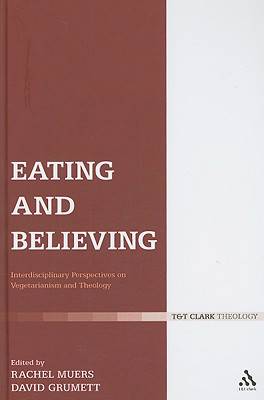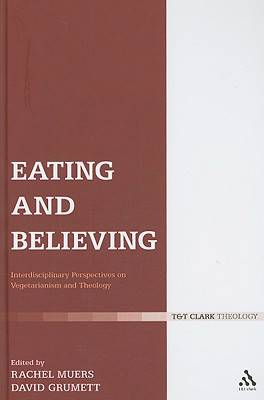
Bedankt voor het vertrouwen het afgelopen jaar! Om jou te bedanken bieden we GRATIS verzending (in België) aan op alles gedurende de hele maand januari.
- Afhalen na 1 uur in een winkel met voorraad
- In januari gratis thuislevering in België
- Ruim aanbod met 7 miljoen producten
Bedankt voor het vertrouwen het afgelopen jaar! Om jou te bedanken bieden we GRATIS verzending (in België) aan op alles gedurende de hele maand januari.
- Afhalen na 1 uur in een winkel met voorraad
- In januari gratis thuislevering in België
- Ruim aanbod met 7 miljoen producten
Zoeken
Eating and Believing
Interdisciplinary Perspectives on Vegetarianism and Theology
€ 373,45
+ 746 punten
Omschrijving
What are the links between people's beliefs and the foods they choose to eat? In the modern Western world, dietary choices are a topic of ethical and political debate, but how can centuries of Christian thought and practice also inform them? And how do reasons for abstaining from particular foods in the modern world compare with earlier ones? This book will shed new light on modern vegetarianism and related forms of dietary choice by situating them in the context of historic Christian practice. It will show how the theological significance of embodied practice may be retrieved and reconceived in the present day.
Food and diet is a neglected area of Christian theology, and Christianity is conspicuous among the modern world's religions in having few dietary rules or customs. Yet historically, food and the practices surrounding it have significantly shaped Christian lives and identities. This collection, prepared collaboratively, includes contributions on the relationship between Christian beliefs and food practices in specific historical contexts. It considers the relationship between eating and believing from non-Christian perspectives that have in turn shaped Christian attitudes and practices. It also examines ethical arguments about vegetarianism and their significance for emerging Christian theologies of food.
Food and diet is a neglected area of Christian theology, and Christianity is conspicuous among the modern world's religions in having few dietary rules or customs. Yet historically, food and the practices surrounding it have significantly shaped Christian lives and identities. This collection, prepared collaboratively, includes contributions on the relationship between Christian beliefs and food practices in specific historical contexts. It considers the relationship between eating and believing from non-Christian perspectives that have in turn shaped Christian attitudes and practices. It also examines ethical arguments about vegetarianism and their significance for emerging Christian theologies of food.
Specificaties
Betrokkenen
- Uitgeverij:
Inhoud
- Aantal bladzijden:
- 288
- Taal:
- Engels
- Reeks:
Eigenschappen
- Productcode (EAN):
- 9780567032843
- Verschijningsdatum:
- 1/12/2008
- Uitvoering:
- Hardcover
- Formaat:
- Genaaid
- Afmetingen:
- 155 mm x 234 mm
- Gewicht:
- 589 g

Alleen bij Standaard Boekhandel
+ 746 punten op je klantenkaart van Standaard Boekhandel
Beoordelingen
We publiceren alleen reviews die voldoen aan de voorwaarden voor reviews. Bekijk onze voorwaarden voor reviews.








